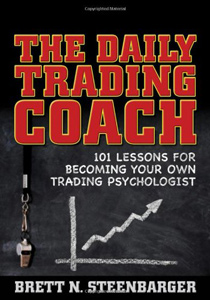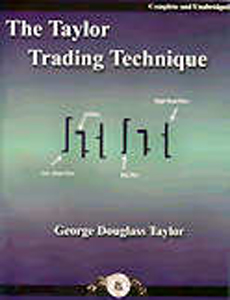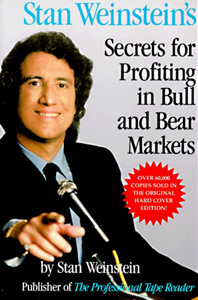Global Economy
Global miner Rio Tinto (RIO) still sells everything it can produce but warns that customers are becoming increasingly cautious on the uncertainty of the outlook for the Europe and United States economies.
The global miner is still generating high cash flows as iron ore prices recovered recently except for aluminium prices which were below production costs.
Commonwealth Bank CEO Ralph Norris, speaking at yesterday's American Chamber of Commerce in Australia luncheon in Sydney, has said that funding costs were to remain high. "All of the banks have a significant portfolio of debt that has been borrowed at lower rates, prior to the start of the crisis, which has continued to roll over at higher rates.
Toyota Motor Corp has forecasted their first ever annual operating loss in its 70 year history. The Japanese automotive company has also put out an 11 day output suspension that is unprecedented. Thousands of contract workers are being laid off raising unemployment and homeless levels, especially in the Nagoya region. The forecasted loss is largely due to the financial economic crisis, the US recession and the increasing value of the Yen vs US dollar.
The IMF or International Monetary Fund has revised up their forecasts for world economic output despite record oil prices and natural disasters - the best groth in three decades. Global economy expected to achieve a growth rate of 4.9%, 0.6% higher than previous growth estimates. Predictions for the global growth in 2007 was also boosted to 4.7%, higer by 0.3%. Australia's economy is pegged to grow 2.9% in 2006 and 3.2% in 2007. This World Economic Outlook is releases twice a year in Washington.
The International Monetary Fund (IMF) has released a global financial stability report stating critical threats and risks that global world markets are exposed to now and the future. Major causes for concern and the major threats to the global financial markets are higher interest rates and other global "imbalances". Some threats to be aware of are the cyclical risks stemming from tighter credit and higher inflation, bad credit - and the quality of credit provided as well as imbalances that have caused the US current account deficit (cAD) to unprecedented levels.
This year, China will outstrip the UK to become the world's fourth largest economy. A new economic census, which has probed the murky depths of China's grey economy, with its cash-only back-alley businesses, decided that the Chinese economy is actually 20 per cent bigger than the official figures suggest.
Professor Jeffrey Sachs of Columbia University, who is also director of the United Nations Millennium Project, says in a talk he gave in Beijing that there are four stages of economic development: pre-commercial, commercial, industrial and knowledge. Thus a country has to make three transformations to get to the wealthiest stage and can get trapped at any of them.
Most African countries are pre-commercial because the rural economy is so isolated from the urban economy that there's little exchange between the two and so little scope for exploiting economies of scale.
- How to Trade Forex and Gold Options
- How to Trade the Gold Price and Profit!
- Forex Trading the EUR/USD Pair € EURO and $ US Dollar
- How to Trade Stock Market Indices S&P500
- How to Trade Crude Oil
- Forex Trading Psychology
- What Are Broker Recommendations?
- Free Tickets to Trading & Investing Seminar & Expo ($18) Brisbane 2013
- Stock Calc App
- All About Warrants
- Introduction to Exchange Traded Funds
- Introduction to Exchange Traded Funds: Features
- Introduction to Exchange Traded Funds: Domestic ETFs
- Introduction to Exchange Traded Funds: International ETFs
- Exchange Traded Commodities
- Australian Stock Scan
- Australian Online Share Trading
- List of Trading Books
- Interesting Thoughts about the Australian Dollar
- What's the Meaning of Hawkish?
- Do You Know How To Use the P/E Ratio
- Trading, Religion and Politics - Do They Have Anything in Common?
- Shares that are Volatile that Double and Half in the Short Term
- Telstra (TLS) T3
- Margin Call by E-mail
- The Cost of Holding a Position
- Lack of Disclosure: Compensation from ASX Listed Company
- Unrealistic Returns and Benchmarks
- CMC Markets Down
- Quality versus Quantity Forex Trading
- Woolworths 1H Sales $30.7bn up 3.2%
Date added 31-01-2013 - ASIC Fines CommBank's CommSec
Date added 25-09-2012 - Industry Super Network Calls to Ban High Frequency Trading (HFT)
Date added 22-09-2012 - NAB Launches Online Share Trading Platform
Date added 19-09-2012 - Reserve Bank of Australia Says 23 Countries Holding AUD
Date added 18-09-2012 - Australia Post Digital Mailbox
Date added 10-09-2012 - Winners and Losers of Trading for Week 2
Date added 16-01-2012 - 2012's First Week of the Best and Worst Traded Stocks
Date added 09-01-2012 - 2011's Last Best and Worst Traded Stocks
Date added 05-01-2012 - Best and Worst Pre-Christmas Traded Stocks
Date added 30-12-2011 - Trading Winners and Losers for Dec. 12-16
Date added 19-12-2011 - Best and Worst Traded Stocks for Dec. 5-9
Date added 13-12-2011 - Top 3 Best and Worst Traded Stocks
Date added 05-12-2011 - ASX Glitch Trading Halt
Date added 27-10-2011 - Worst Trade Stocks (and the Best)
Date added 06-08-2011
Top 150 Public Companies Listed on the Australian Stockmarket as at 29/05/2009
- BHP Billiton
- Westpac Banking Corporation (WBC)
- Commonwealth Bank of Australia (CBA)
- National Australia Bank (NAB)
- Telstra (TLS)
- ANZ
- News Corporation (NWS)
- Woolworths Limited(WOW)
- Woodside Petroleum Limited (WPL)
- Rio Tinto
- Westfield Group (WDC)
- Westfarmers Limited (WES)
- QBE Insurance
- CSL
- Newcrest Mining Limited (NCM)
- Origin Energy Limited (ORG)
- Santos Limited (STO)
- AMP Limited (AMP)
- Macquarie Group (MQG)
- Foster’s Group Limited (FGL)



